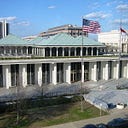Harnett County School Board Presses Gov to Reopen Schools
Move comes day after Harvard, Oxford, Stanford epidemiologists say “schools and universities should be open for in-person teaching”
Gov. Cooper, under pressure from far-left NCAE, has refused to provide all parents the option of full-time in-person instruction for their kids
Raleigh, N.C. — The Harnett County Board of Education pressed Gov. Roy Cooper to “immediately implement an expedited plan to allow the Harnett County Public School System to return to normal operations” in a resolution passed this week.
The move is supported by overwhelming scientific evidence that shows children, especially those from less fortunate circumstances, are suffering potentially irreparable harm by being kept out of classrooms.
The day before Harnett County Board of Education resolution, world-renowned epidemiologists from Harvard, Oxford, and Stanford issued a public rebuke of lockdown policies. The experts wrote, “Schools and universities should be open for in-person teaching. Extracurricular activities, such as sports, should be resumed.”
Sen. Jim Burgin (R-Harnett) said, “I fully support the Board of Education’s push to reopen schools. Gov. Cooper needs to provide all parents with the option of sending their children to school for full-time, in-person instruction. The Governor’s refusal to do so because of political pressure from the far-left NCAE will widen education disparities and, according to Harvard experts, ‘some children may never recover.’”
Public health authorities, including the CDC, have been sounding the alarm about the severe consequences of prohibiting children from getting in-person classroom instruction.
Robert Redfield, director of the CDC, recently told Congress, “I don’t think I can emphasize it enough as the director for the Centers for Disease Control, the leading public health agency in the world — it is in the public health interest that these K through 12 students to get the schools back open for face-to-face learning.”
A group of Harvard public health experts wrote recently that preventing students from learning in the classroom “will be an educational disaster that some children may never recover from.”
A recently released study from the Organisation for Economic Cooperation and Development also found that a “typical current student might expect something on the order of 3% lower career earnings if schools immediately returned to 2019 performance levels.” Disadvantaged students, however, “will almost certainly see larger impacts.”
